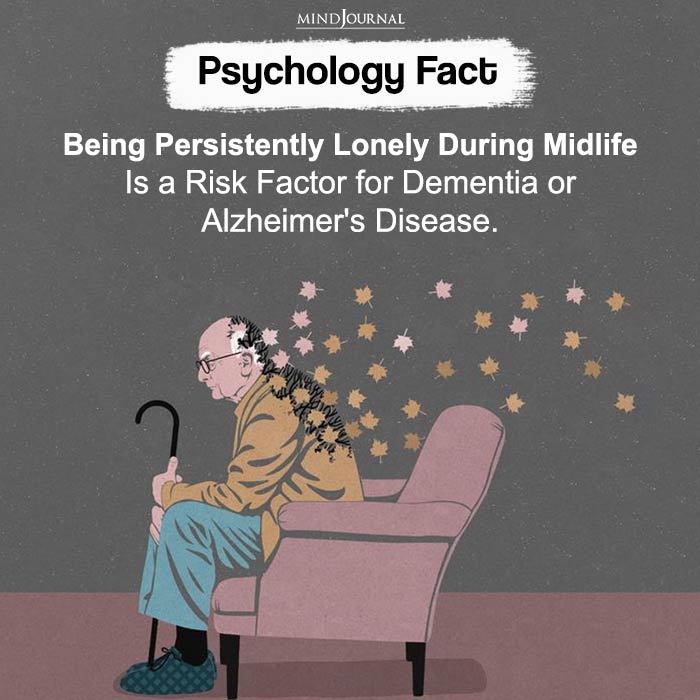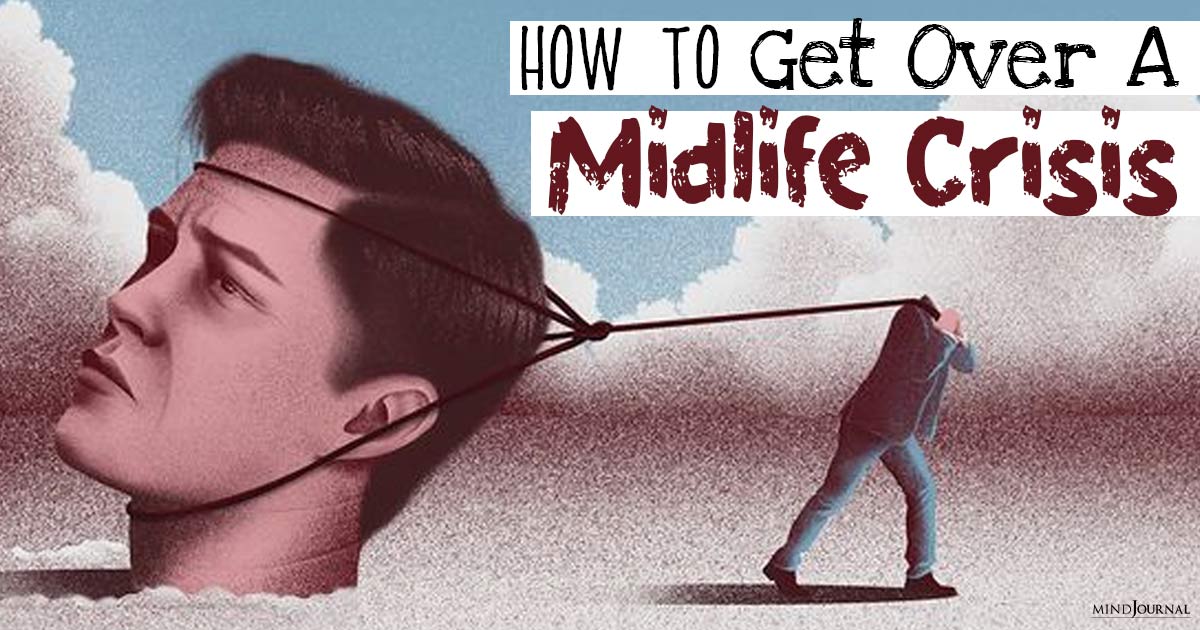Do you feel lost or dissatisfied most of the time? Are you going through a midlife crisis? Don’t worry, age catches up to us all. Let’s dive in to find out how to get over a midlife crisis and take steps towards a brighter future.
At some point in our lives, many of us experience a midlife crisis. It can be a time of confusion, doubt, and anxiety as we question our purpose, accomplishments, and direction in life.
Hence, it becomes crucial that we know how to deal with such difficult emotions in a healthy way. But before you can learn how do you get over a midlife crisis, you need to understand what is a midlife crisis and how to identify it.
What is a midlife crisis?
A midlife crisis is a period of introspection, doubt and questioning that some adults experience as they confront their own aging and mortality. It is a period of introspection, reflection and even turmoil that some people experience in their 40s and 50s.
It’s a psychological phenomenon where people start to doubt the value and meaning of their lives up to that point. They become dissatisfied with their jobs, relationships and current priorities.

A midlife crisis is often triggered by life changes that make a person confront their own mortality and reevaluate their life’s direction. It’s a time when people often start to question their life choices, goals, and accomplishments, and may feel a sense of dissatisfaction or restlessness.
People going through a midlife crisis may experience a wide range of emotions, from sadness and regret to anger and frustration.
Related: The 3 Stages in the Midlife Search for Meaning
Understanding midlife crisis
A midlife crisis is a normal part of psychological development during midlife that prompts reevaluation of priorities, values and life purpose. If approached well, it can produce positive personal transformation.
It’s usually triggered by life events like –
- Children leaving home
- Realizing one is nearing the halfway point of their life
- Declining health
- Career stagnation
These things prompt reflection on lost opportunities and finite time left. However, not everyone experiences a midlife crisis, but it’s estimated that around 15-20% of midlife adults do. It’s more common in men.
How a person navigates their midlife crisis determines the outcome. Unhealthy coping mechanisms often cause more issues while self-reflection and positive life changes can produce growth.
The key is how they choose to navigate the crisis – impulsively or intentionally – which determines whether it produces stagnation or self-discovery.
Now that we have a clear understanding of what is a midlife crisis, let’s explore the symptoms to learn how to get over a midlife crisis.
Read The Symbol You Pick Will Reveal The Phase of Life You Have Entered
Symptoms of a midlife crisis
Common symptoms include depression, anxiety, restlessness, loss of motivation, feelings of unfulfillment and a desire for change.
Some of the most common symptoms of a midlife crisis include:
- A sense of boredom or restlessness with your current life
- Feeling like you’ve missed out on opportunities or experiences
- A desire to make significant changes in your life
- Feeling unfulfilled or dissatisfied with your career or relationships
- A fear of aging or mortality
- Questioning the meaning and purpose of life
- Feeling a sense of loss or grief for unfulfilled dreams or goals
Some people seek superficial fixes like buying expensive items or having affairs.
How to get over a midlife crisis
Now that you know what is a midlife crisis, let us explore how do you get over a midlife crisis. Here are a few strategies that can help you learn how to get over a midlife crisis –
1. Accept your feelings
The first step in getting over a midlife crisis is to accept your feelings. It’s normal to feel confused, lost, or dissatisfied during this time of life.
Don’t try to ignore or suppress your feelings, as this will only make things worse. Instead, acknowledge your emotions and allow yourself to experience them fully. This will help you to process your feelings and move forward.
2. Reflect on your life so far
Take time to reflect on your life up to this point. Think about what gives you satisfaction and purpose. Consider what you value most – your career, relationships, contributions to others.
Reflecting can help you identify areas of your life that may need improvement or growth. But make sure to also appreciate all that you’ve accomplished thus far.
3. Identify the root cause
To get over a midlife crisis, it’s important to identify the root cause of your feelings. What is it that’s causing you to feel dissatisfied or unfulfilled? Is it your career, your relationships, your health, or something else?
Take some time to reflect on your life and try to identify the underlying issue. Once you’ve identified the root cause, you can start to address it. This is how to get over a midlife crisis.
4. Reassess your goals and priorities
A midlife crisis can be an opportunity to reassess your goals and priorities. Take some time to think about what’s important to you and what you want to achieve in life.
Are your current goals and priorities aligned with your values and aspirations? If not, it may be time to make some changes. Set new goals that are meaningful and fulfilling to you, and start taking steps to achieve them.
Related: 5 Reasons For The Quarter Life Crisis
5. Find new outlets for self-expression
Many people dealing with a midlife crisis feel restricted and unfulfilled. Adding new outlets for self-expression can help combat these feelings.
Try taking up a new hobby you’ve always wanted to try, whether it’s painting, playing an instrument, writing or joining a sports team. You could also volunteer your time and skills in a new way that brings you fulfillment.
6. Focus on relationships
Healthy relationships are an incredible source of meaning, joy and comfort during challenging times. Reconnect with old friends, make more time for family and invest in your important relationships.
Share what you’re going through with those closest to you – they likely want to support you during this phase. Relationships can also expose us to new perspectives and passions to help us grow.
7. Embrace change
A midlife crisis is often a time of significant change, and it’s important to embrace this change rather than resist it.
Change can be scary, but it can also be an opportunity for growth and transformation. Embrace new experiences and opportunities, and be open to the possibilities that life has to offer.
A midlife crisis may reveal that changes are needed in your life, but try not to act impulsively. Make changes grounded in reflection rather than desperation. This is a crucial step when learning how to get over a midlife crisis.
8. Take action
To get over a midlife crisis, you need to take action. This may involve making significant changes in your life, such as changing careers, starting a new hobby, or ending a toxic relationship.
Major life changes like ending a marriage or quitting your job should be well thought-out. So consider making necessary changes but not radical changes. Think of starting with smaller, manageable changes you can make.
Take small steps towards your goals and celebrate your progress along the way. This is how do you get over a midlife crisis.
9. Seek support
Going through a midlife crisis can be challenging, and it’s important to seek support from friends, family, or a therapist.
Talking to someone can help you gain a new perspective on your situation and provide you with the encouragement and motivation you need to move forward. Don’t be afraid to reach out for help when you need it.
10. Practice self-care
Taking care of yourself is essential when going through a midlife crisis. Make time for self-care activities that nourish your body, mind, and soul. This may include exercise, meditation, reading, spending time in nature, or pursuing a creative hobby.
Self-care can help you to reduce stress, boost your mood, and improve your overall well-being.
11. Find new meaning and purpose
Without a sense of purpose, even the most comfortable life can feel empty. A midlife crisis is a chance to identify a new purpose that aligns with your current stage of life.
Your purpose might involve mentorship, helping the next generation or giving back. Think about how you can use your skills, experiences and resources to positively impact others or important causes.
Developing a purpose can give you renewed meaning and motivation. This is one of the most effective ways to learn how to get over a midlife crisis.
12. Stay positive
When going through a midlife crisis, it’s easy to focus on the negative aspects of your life. However, this will only keep you stuck in a cycle of negativity and despair.
Though difficult, a midlife crisis is ultimately an opportunity for self-discovery, growth and renewal if you take the right steps. Stay positive by celebrating every success, no matter how small.
Related: Midlife Crisis and a “Silver” Divorce
Focus on the future — you’re not stuck on this path forever. With effort and time,you’ll come through this phase stronger, wiser and surer of your values and purpose in life.
Practice gratitude for the things you have and the people in your life. This will help you to shift your mindset and find more joy and fulfillment in your life.

Mistakes to avoid
Now that we know how to get over a midlife crisis, let’s explore some mistakes people make when trying learn how do you get over a midlife crisis:
1. Acting impulsively
Buying a sports car, having an affair, or quitting your job without having a solid plan in place are examples of impulsive actions people take during a midlife crisis.
These drastic changes often don’t solve the underlying issues and can cause more problems.
2. Focusing only on outer change
Some people focus only on changing externals like their wardrobe, hobbies or physical appearance. But real change needs to come from within by reflectively addressing emotions and needs.
3. Seeking distraction instead of meaning
Some try to numb feelings and distract themselves through excess drinking, partying or spending. But this avoidance does not solve the need for more meaning and purpose.
4. Isolating themselves
Withdrawing from social support systems by disconnecting from friends and family worsens feelings of emptiness during a midlife crisis. Social connections are important for getting perspective and assistance.
5. Blaming others
Placing blame on spouses, children, employers or others for one’s unhappiness does not allow for self-reflection or personal growth. Taking responsibility for oneself is important.
6. Enacting permanent life changes too quickly
Making hasty, life-altering decisions without proper planning and consideration often leads to new regret. Changes are more successful when made gradually and intentionally.
Reflection, meaning, purpose, connection and intentional growth are usually more effective strategies.
Self-care practices to manage midlife crisis
Learning to avoid mistakes is not enough, self-care is a crucial step in figuring out how to get over a midlife crisis. Here are some self-care activities that can be helpful for someone going through a midlife crisis:
1. Exercise
Whether it’s a brisk walk, a yoga class, or a weightlifting session, find an exercise routine that works for you and make it a regular part of your routine.
2. Practice mindfulness
You can practice mindfulness, the practice of being present in the current moment, through meditation, deep breathing exercises, or simple mindfulness practices like focusing on your senses or surroundings.
3. Journaling
Try journaling for a few minutes each day by writing down your thoughts and feelings, either in the morning or before bed.
4. Spending time in nature
Whether it’s going for a hike, spending time at the beach, or simply sitting in a park, make time to connect with the natural world.
5. Pursuing a creative hobby
Pursuing a creative hobby, such as painting, writing, or playing music, can be a great way to express yourself and tap into your inner creativity.
6. Getting enough sleep
Aim for 7-9 hours of sleep each night and establish a regular sleep routine.
7. Eating a healthy diet
Focus on whole, nutrient-rich foods such as fruits, vegetables, whole grains, and lean proteins.
8. Connect with others
Make time for social activities that you enjoy, whether it’s going to a movie, having dinner with friends, or joining a social club or group.
9. Seek professional help
If you’re struggling to manage your feelings and emotions on your own, don’t hesitate to seek professional help. A therapist or counselor can provide you with the support and guidance you need.
Remember, self-care is all about taking care of yourself and prioritizing your well-being. Find activities that work for you and make them a regular part of your routine to know how to get over a midlife crisis.
Related: 7 Things To Consider When Making A Midlife Career Change
Takeaway

A midlife crisis can be a challenging and confusing time, but it can also be an opportunity for growth and transformation. By following the suggestions shared above, you can get over a midlife crisis and emerge stronger, happier, and more fulfilled.
Remember, you’re not alone, and there is always hope for a brighter future. So take the first step towards a better life today, and start living the life you truly deserve.
Frequently Asked Questions (FAQs):
What are the signs of a midlife crisis?
Signs of a midlife crisis may include feelings of discontentment, increased anxiety or depression, changes in behavior, and questioning one’s identity.
What age is the midlife crisis?
The midlife crisis typically occurs between the ages of 40 and 60, with the average age being around 45-50.
Do midlife crisis go away?
Yes, midlife crises can go away with time, self-reflection, and the adoption of new perspectives, behaviors, and coping strategies.









Leave a Reply
You must be logged in to post a comment.